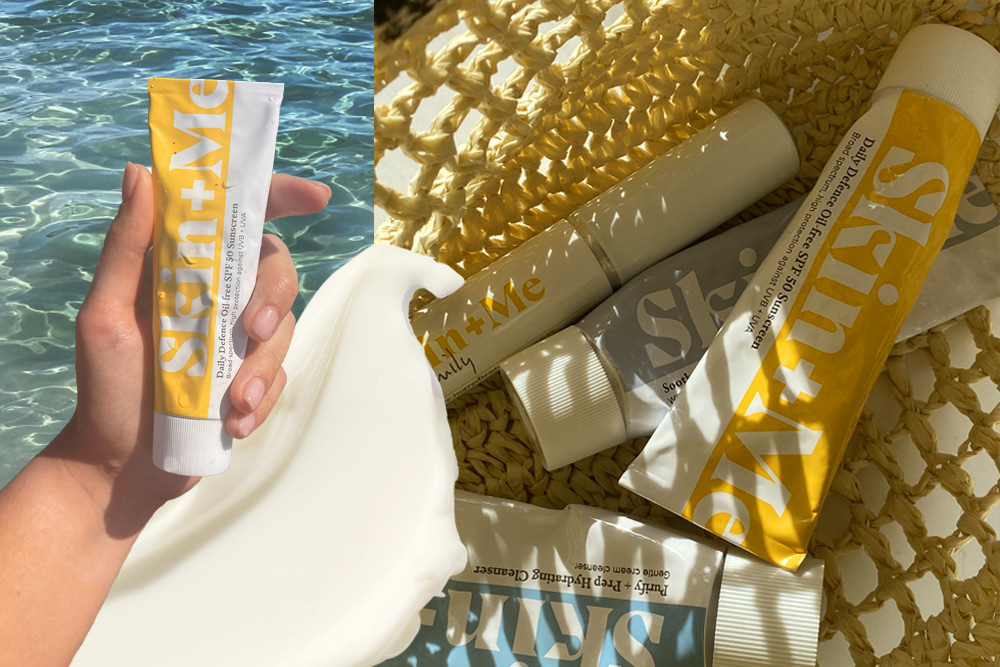Ask A Dermatologist: Why Are Sunscreen Filters So Important?

Link to share article here:
Ask A Dermatologist: Using Tretinoin on Sensitive Skin
Tretinoin is a vitamin A derivative and powerhouse ingredient renowned amongst dermatologists for its huge range of skin benefits. It’s a major multi-tasker, helping to address many skin conditions and concerns with scientifically-proven results and long-term effectiveness.
Tretinoin can be used to treat acne, make pores less visible, and reduce fine lines and wrinkles. It’s also often prescribed to treat pigmentation disorders such as melasma and sunlight-induced hyperpigmentation.
However, despite its widely-proven benefits and visible results, tretinoin can sometimes trigger mild dryness or irritation, especially when being introduced into a skincare routine for the first time. Seasonal changes from bright sunshine and warmth in summer to a cold snap in winter can also affect how your skin reacts to tretinoin and other active ingredients.
If your skin is already sensitive, it’s understandable that you want to know if tretinoin could work for you. Our consultant dermatologist Dr Malvina Cunningham has all the answers.
Skin + Me: Can anyone use tretinoin?
Dr Malvina Cunningham: Tretinoin is a prescription-only active ingredient, and the first thing that needs to be considered is whether it’s appropriate for your skin concerns. A professional will be able to assess your skin and advise if tretinoin is safe for you to use.
Usually, you’d need to visit a doctor to get a prescription for Tretinoin, but our expert Dermatology Team at Skin + Me is able to prescribe it, among other prescription-only ingredients, for you online – then formulate it into a personalised solution that can then be delivered straight to your door.
Skin + Me: What is the true definition of skin sensitivity and if I’ve been prescribed tretinoin what’s the best course of action?
Dr Malvina Cunningham: Skin sensitivity is a term that is loosely used to describe an exaggerated or unpleasant sensation when applying a skincare product. The term itself is subjective, and sensitivity can vary in severity and can be influenced by many different factors – like pre-existing medical conditions, age, hormones, skin type and tone and even the environment. Depending on the cause, your skin can feel tight, uncomfortable, red and easily reactive or dry and itchy.
Skin sensitivity is nothing to be worried about, as it won’t cause you serious harm, but it can be uncomfortable. When in doubt, take it slow when introducing any new active ingredient, and if serious irritation occurs, stop using it.
Skin + Me: I have rosacea or eczema, can I still use tretinoin?
Dr Malvina Cunningham: These are common skin conditions, with rosacea affecting around 61 per cent of women in the UK and 23 per cent of the UK suffering from eczema.
Rosacea is a common cause of skin sensitivity, where the skin often feels dry and reacts easily. It can often lead to redness and breakouts and can be mistaken for acne. Using tretinoin when you have rosacea is not always going to lead to problems (and in fact, it can be helpful in certain situations), but the inflammation in rosacea needs to be controlled first before any tretinoin is applied. If you have rosacea, seek advice from a professional who will be able to make the right recommendations for you.
Any form of eczema can lead to sensitivity. The correct use of tretinoin in these situations depends on the severity of the underlying condition and how well-controlled it is. In general, if you’re using prescription medication daily to control your eczema symptoms, tretinoin is likely not the right choice for you.
Ultimately if you consider yourself to have sensitive skin but you do not suffer from an underlying skin condition, tretinoin can be used if introduced carefully, slowly and at appropriate low and gentle doses, with a supportive accompanying skincare routine.
The takeaway? Yes, you can still use tretinoin, with care
As with all powerful active ingredients, slow and steady wins the race. Most skin problems do not have a quick fix, and instead, need to be tackled appropriately and with the guidance of a professional. If in doubt, speak to your doctor or a dermatologist about whether or not tretinoin is appropriate for your skin concerns when taking into account any skin conditions.
Feel like you’re missing out because you can’t use tretinoin? Fortunately, there are still lots of active ingredients that are gentle enough for sensitive skin. Niacinamide is a great active ingredient that is tolerated well by even the most sensitive skin, and it’s also a fantastic multi-tasker.
And, no matter how sensitive your skin is, remember that tretinoin can increase photosensitivity – wearing a broad-spectrum sunscreen every day is essential to protect against sun damage. We designed Daily Defence Oil-free SPF50 Sunscreen to use alongside active ingredients, so you can stay safe while your personalised treatment gets to work.
New to Skin + Me? Get your first month of personalised skincare for £4.99 with promo code DOSE – complete our quick consultation here.
Looking for a routine refresh? Add the Dream Routine to your Skin + Me subscription.
In need of a restock? Head to The Skincare Shop for one-off purchases of your Routine Essentials.



